Most PC troubleshooting tasks can be done by tweaking the registry settings. To access Windows registry, you need to open the built-in tool – Registry Editor. In this tutorial we’ll show you 6 common ways to open Registry Editor in Windows 10.
Method 1: Open Registry Editor via Run
Press the Windows key + R to open the Run box. Type regedit and press Enter.
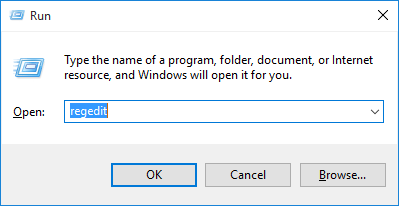
This should be the simplest and quickest way to open Registry Editor in all versions of Windows.
Method 2: Open Registry Editor Using Command Prompt
Press Win + X keys. Choose Command Prompt (Admin) from the given options.
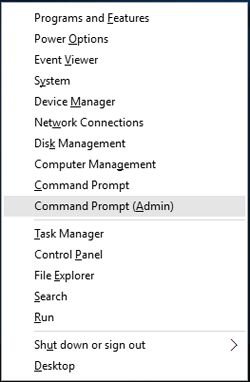
Type regedit at the Command Prompt and press Enter. It will launch Registry Editor immediately.

Method 3: Open Registry Editor Using Cortana Search
Click inside the Cortana Search box from the taskbar, type regedit and press Enter.
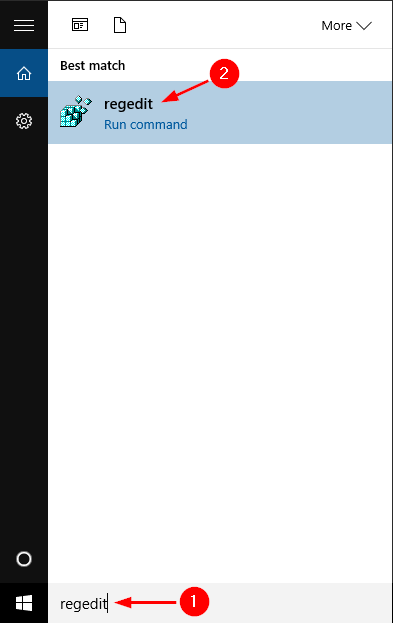
Click regedit from the search result.
Method 4: Open Registry Editor Using PowerShell
Open Windows PowerShell. This can be done by pressing Win + R keys to open Run and then type powershell in the box given.

Type regedit and press Enter. Click Yes when the UAC confirmation box is displayed.
Method 5: Open Registry Editor via File Explorer
Open File Explorer in Windows 10. Browse to the system32 folder: C:\Windows\System32.
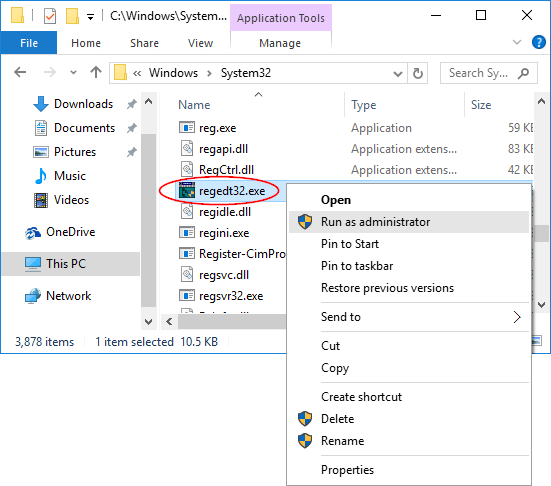
Locate the regedt32.exe file. Right-click on it and select Run as administrator.
Method 6: Open Registry Editor By Creating Desktop Shortcut
If you need to access Registry Editor frequently, you can create a desktop shortcut for quick access. Follow these steps:
- Right-click on any empty area of your desktop, select New -> Shortcut.
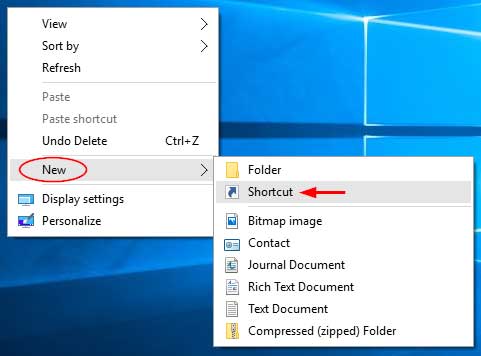
- This will open the Create Shortcut wizard. It will ask you the location of the item you want to create a shortcut for. Type %windir%\regedit.exe and click Next.
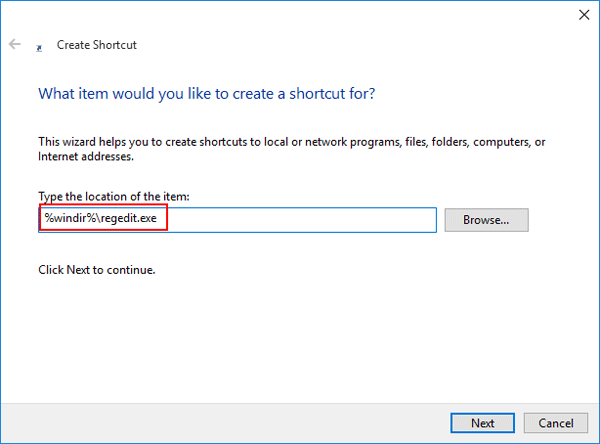
- Give your shortcut any name you prefer and click Finish.
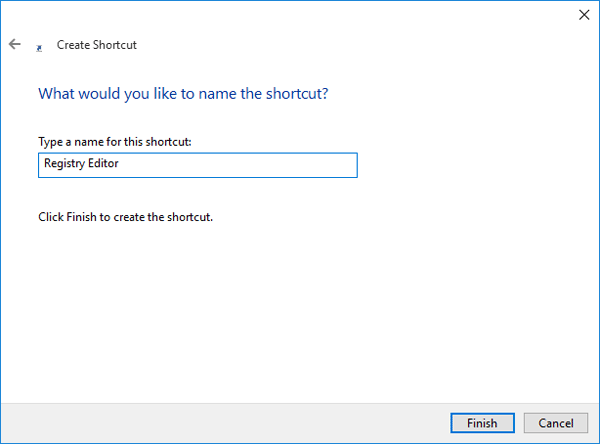
- You’ll see the shortcut on the desktop. Double-click on it and you can open Registry Editor quickly.